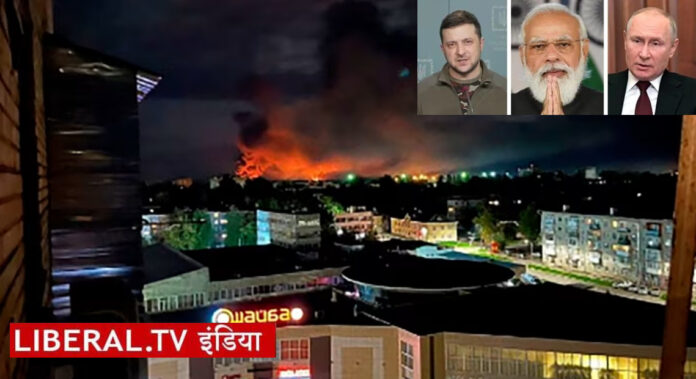In a tense and extraordinary meeting that has drawn significant attention, Ukrainian President Volodymyr Zelenskyy made it clear that despite a heated confrontation with U.S. President Donald Trump, he is not giving up on salvaging the crucial relationship between the two nations. After their explosive Oval Office encounter on Friday, where Trump accused Zelenskyy of ingratitude for U.S. aid and disrespect towards the American people, Zelenskyy’s resolve to continue diplomatic talks with Washington remains steadfast, though he is clearly frustrated.
During the televised exchange, Trump raised doubts about the future of U.S. support for Ukraine, even going so far as to suggest that Zelenskyy’s actions could risk World War Three. This public rebuke from the U.S. president left Ukraine’s future military backing in question, as the United States has been Kyiv’s strongest ally in its ongoing conflict with Russia. However, Zelenskyy, speaking with reporters after a summit in London, carefully navigated his displeasure, avoiding further escalation, and emphasized his commitment to maintaining open channels with Washington.
In a diplomatic balancing act, Zelenskyy reiterated that Ukraine would never concede territory to Russia in any peace deal, a line he has held firm on throughout the war. His stance on sovereignty is non-negotiable, and the notion of giving up occupied land is something he firmly rejected. But even with the shadow of Friday’s heated exchange looming large, Zelenskyy made it clear that Ukraine would continue seeking support from the U.S. for its defense, stressing that cutting off military aid would only benefit Russian President Vladimir Putin.
Interestingly, Zelenskyy’s visit to Washington had also been expected to culminate in the signing of a minerals deal between Ukraine and the U.S., with Kyiv hoping the agreement would strengthen Trump’s backing for its war effort. However, the abrupt end to his trip left this deal unfinalized. Nonetheless, Zelenskyy indicated that Ukraine remains committed to signing the agreement, which would see Ukraine’s rich deposits of lithium and rare earth minerals potentially play a critical role in the geopolitical dynamics between Washington and Kyiv.
On the other side, Russian officials, including influential parliamentarian Konstantin Kosachev, have downplayed the significance of Europe’s attempts to craft a peace plan, suggesting that any real progress depends on the state of Russian-American relations. This echoes Russia’s view that Ukraine’s fate is largely shaped by the actions and policies of the U.S., rather than the desires of its European neighbors.
Despite the tensions and the uncertainty surrounding U.S. support, Zelenskyy’s determination to press on is clear. He showed no signs of yielding to pressure when asked about the possibility of resignation. He pointedly declared that to oust him would require more than just elections – a statement that underlines his belief in the importance of Ukraine’s democratic process and his role in it.
As the situation unfolds, Zelenskyy’s handling of the diplomatic crisis will be critical. His ability to weather the storm and maintain Ukraine’s position in the face of fluctuating U.S. support, while also managing European partnerships, is key to securing his nation’s future. While the confrontation with Trump was undoubtedly a setback, Zelenskyy’s decision to keep the door open for dialogue may ultimately prove to be the wisest course of action.



